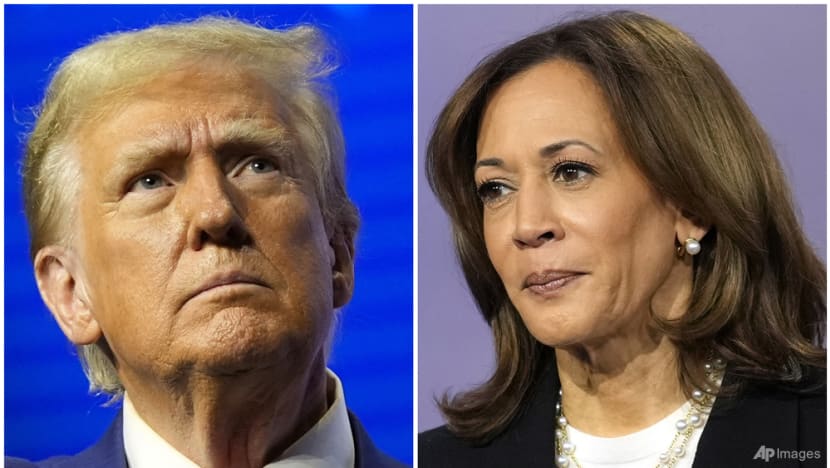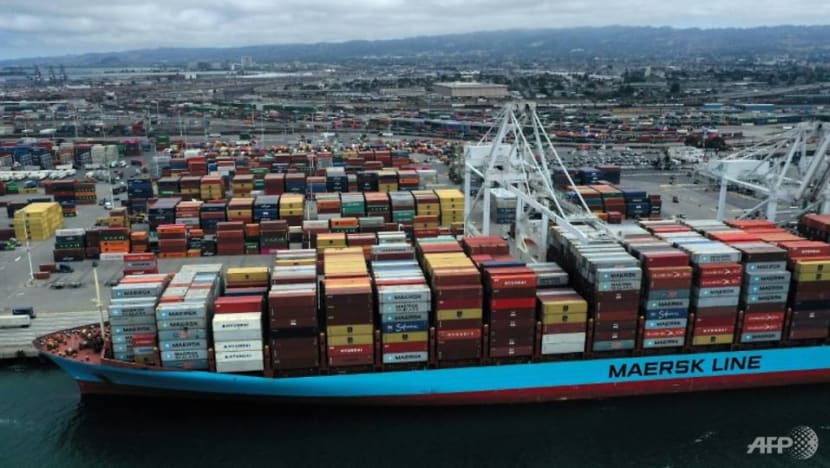Commentary: With just days to US presidential election, two takeaways for Singapore
Many of those not eligible to vote for America’s next president have an opinion on whether Kamala Harris or Donald Trump will win. Regardless of who is elected on Nov 5, here’s what it means for Singapore, says Kevin Chen from the S Rajaratnam School of International Studies.


This audio is generated by an AI tool.
SINGAPORE: The United States presidential election has become something of a spectator sport in Southeast Asia. We can watch election rallies live from the key battleground states; our social media feeds are filled with viral videos as both campaigns court online voters; everyone has an opinion of whether Kamala Harris or Donald Trump will prevail.
With just days to go before Nov 5, the US election has become a topic of lunchtime conversations, not just academic conferences. I know people who would be hard-pressed to name all the electoral constituencies in Singapore, but they can rattle off the names of the seven US swing states with ease.
As US election season reaches its climax, however, it is timely for Singaporeans to step back and ask an important question: What does the US election mean for our country?
Answering this requires an appreciation of the development of US-Singapore ties and how the election affects the very order under which Singapore thrives.
TRIANGULATING US-SINGAPORE TIES
The US-Singapore relationship is not rooted in a recognition of shared values – as idyllic as that may sound. It has been and will continue to be about shared interests, especially when it comes to the stability of the rules-based order.
For Singapore, the bilateral relationship hinges on the recognition that only the US has the capacity to guarantee the regional order in Asia. In the post-Cold War era, there were fears that a US withdrawal would cause a “chain reaction of destabilisation” in Asia.
It was for this reason that Singapore offered the US the use of its air and naval bases in 1990, intent on keeping the US invested in the region after it was forced to leave Subic Bay.
Washington and Singapore do not always see eye to eye – but the strategic logic that underpins their relationship is not affected by US election outcomes. Rather, Singapore adapts to the realities of the situation as they arise, adjusting their approach as political currents in Washington change.
At present, these political currents point to a bipartisan suspicion towards China and free trade. Competition with China will be the guiding force of US Asia policy for either a Harris or Trump administration. Neither is also unlikely to pursue multilateral trade deals due to growing domestic unhappiness against free trade, while being more suspicious of alleged Chinese efforts to circumvent US tariffs.
WHAT US ELECTION OUTCOME COULD MEAN
Since both candidates would likely follow the same strategic trajectory on Asia, the difference comes from their approach over the next four years.
Should she win, Vice President Kamala Harris would likely continue the pragmatic, multilateral approach that her predecessor, President Joe Biden, pursued during his term. This would include support for climate change agreements and a more consultative approach to allies, both of which Singapore would prefer.
She is also likely to continue the Biden-era China policy of being “competitive when it should be, collaborative when it can be, and adversarial when it must be”. While entailing some risk over miscalculations, such a policy would at least present continuity instead of drastic change.
In Southeast Asia, however, Harris may face larger challenges in renewing the US value proposition to the region. She would be more likely to attend high-level ASEAN events than Trump (who skipped most of them, even those held virtually).
But it would be hard to convince regional governments of US commitment to the region without a multilateral trade deal. Her likely focus on human rights may also complicate efforts to reach out to regional governments by appearing irrelevant or condescending.
Singapore, which hopes for the US to support the regional security architecture, would likely be worried by such developments, especially if it comes under pressure to do more for Washington.

Trump, on the other hand, would present much more risk vis-a-vis his China policy. His tariff threats would wreak havoc on global trade and supply chains if carried out. He may also go even further, considering one of his former Cabinet members called for a complete decoupling from China. The trading system would eventually recover, but not before suffering prolonged turbulence.
Despite this, a second Trump administration may counterintuitively make inroads with Southeast Asian governments.
His transactional approach may find more support in Southeast Asia, where governments prefer to talk about deliverables such as investment deals instead of human rights and values. He may also find common ground and personal rapport with regional leaders such as Indonesian President Prabowo Subianto, given his affinity with strongmen who can “get things done” regardless of conventional restraints.
Singapore leaders might have to change tack, planning more one-on-one discussions between heads of government to secure commitments from the US.
TAKEAWAYS FOR SINGAPORE
Neither scenario is risk-free. Far from being a cliche, Singapore should prepare for a bumpy road ahead, regardless of who wins.
Harris may provide the multilateral leadership that Singapore wants on issues such as climate change but fail to resuscitate US policy on Southeast Asia.
Trump might make inroads with Southeast Asian leaders but cause chaos with his trade and China policies. While building on the same strategic understandings, the exact shape of these policies will depend on the advisers the victorious candidate employs.
For the average Singaporean halfway around the world, it is important to understand that Singapore’s relations with other states do not hinge on the identity of a single leader. We are price-takers instead of price-setters, and any moral misgivings we have need to take a backseat in the pursuit of our national interests.
However, this does not mean we are helpless, as we retain the agency to stand our ground against foreign pressure.
The other takeaway is that the US stands as a cautionary tale of how a country can become politically divided. Polarisation begets polarisation, with more sociocultural fault lines to exploit.
Regardless of the outcome of the November election, it will take a long process of conversation and healing before the polarised nature of US politics can ebb, if ever. As Singaporeans, we should value the harmonious society we live in and strive to keep it that way.
Kevin Chen is an Associate Research Fellow with the US Programme at the S Rajaratnam School of International Studies (RSIS), Nanyang Technological University (NTU), Singapore.


















